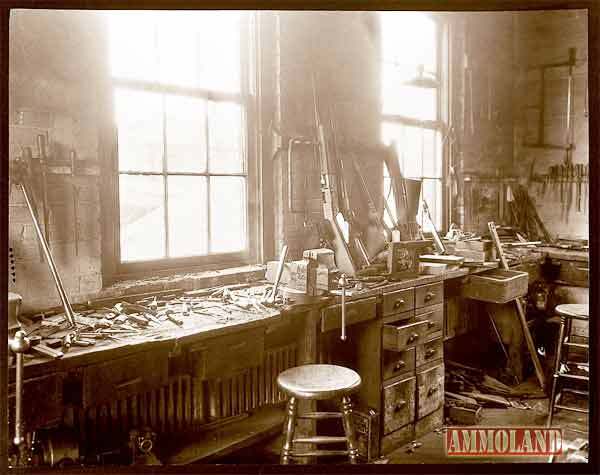
Utah -(Ammoland.com)- As was mentioned in Part 2, the success of John Moses Browning’s Auto-5 shotgun as produced by Fabrique Nationale did not sit well with T. G. Bennett at Winchester.
Browning’s absence at Winchester had garnered enough attention and questions that the company had obviously grown tired of repeating the same thing, over and over, each time someone new asked what had happened between the two parties.
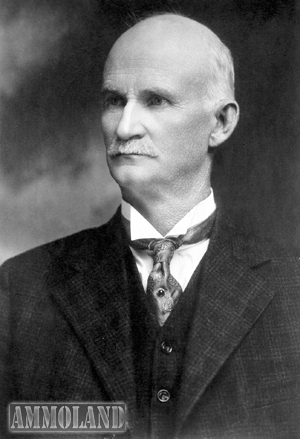
So, on August 21, 1903, Winchester released a public letter explaining – in their own way – what had happened between the two parties. It may or may not have been seen as such at the time, but through the benefit of more than a century of hindsight, that document has become known as the “Winchester ‘Sour Grapes’ Letter.”
In the letter signed “Winchester Repeating Arms Co.” and on letterhead noting Bennett as president at the top, it was explained that for years, they had “bought everything which [Browning] invented which had merit, whether we used it or not.” By 1902, however, Browning “had become rather high-priced” and Winchester had “let them go” as a result.
If the letter had ended there, no one would have thought anything of it. At the end of the day, profit margins are everything to a company, and parting ways with someone over money was certainly commonplace.
Unfortunately, the letter doesn’t end there. It goes on to say that John and his brothers felt that “they were the only people who could invent guns” and that they alone knew what the public wanted in terms of new arms.
They acknowledged that John “was in many respects a genius,” and then started throwing punches.
It was claimed that none of Browning’s inventions could be made as presented, and that it was only through the tireless work “by the people in our employ” that any of Browning’s designs reached a point where “they could be manufactured successfully.” Winchester then claimed that the Model 1886 lever-action rifle was “more largely the invention of our Mr. Mason” and that all Browning contributed were “the locking features only.”
As a final blow, Winchester said that “[w]e shall be perfectly able to get along without the Brownings, and shall probably be better off without them than with them. … On the other hand, we do not believe they will get along as well without us as they did with us.”
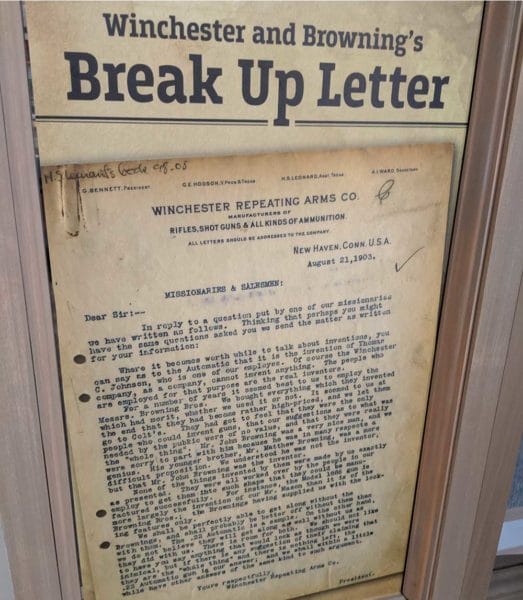
History would show that this would not be the case. When production of the Auto-5 ended in 1998, more than 2.7 million had been made – and that’s not including the hundreds of thousands more made under license to Remington and Savage.
Of course, Browning would go on to invent dozens more guns and cartridges until his death in 1926. One need look no further than to the legacy of his Model 1911 semi-automatic pistol to see that John Moses Browning and his brothers did, in fact, get along perfectly well without Winchester.
About Logan Metesh
Logan Metesh is a historian with a focus on firearms history and development. He runs High Caliber History LLC and has more than a decade of experience working for the Smithsonian Institution, the National Park Service, and the NRA Museums. His ability to present history and research in an engaging manner has made him a sought after consultant, writer, and museum professional. The ease with which he can recall obscure historical facts and figures makes him very good at Jeopardy!, but exceptionally bad at geometry.



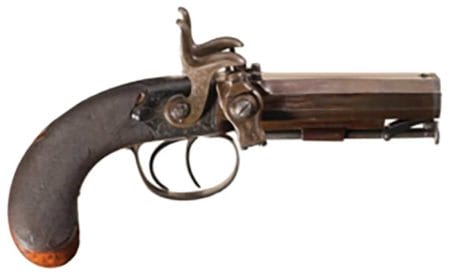

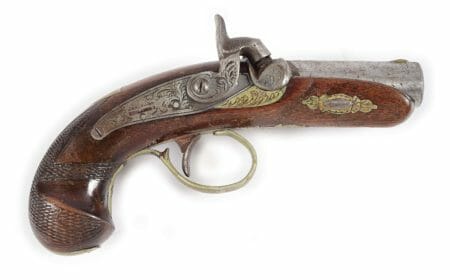

Excellent series! I thoroughly enjoyed reading every bit of it. Moar, plz!!
I’ve been enjoying greatly this series.. I’ve long had a very high respect for the design sense that JM Browning has had. I own quite a few of his designs.. in fact, have one on my hip this instant. His BHP is in my view one of the finest semi auto handguns ever. Mine is old enough it was made in Belgium, is a bit abused from long service, but still functons perfectly and is far more accurate than I will ever be. His lever guns, some of which I have in appropriate “handgun” rounds, and also larger rifle rounds,… Read more »
Interesting article but Winchester has done very well by itself after the breakup. Browning produced and sold guns so I find it hard to understand why they would sell their inventions to any other company.
@Tcat, My complaint about Winchester is that they sent all those American jobs overseas. If those jobs had stayed here, and those voters incomes came from Winchester in America, then current politics might be different.
At that time Browning did not have the capacity to manufacture the guns in sufficient quantity. They were mostly designers and innovators, producing in small numbers. Even today Browning do not manufacture much themselves, they conitnue to use FN in Belgium, Miroku in Japan, two that I know of. =The other issue came up in episode two of this series.. WInchester bought the production and patent rights for a fixed lump sum price, then dod what they would. The main difference with REmington, FN, etc, was that the Browning company received a royalty for each firearm produced and sold. Thus,… Read more »